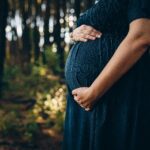It is a well known fact that postpartum depression (PPD) is a global phenomenon that women may experience, regardless of cultural identity and beliefs. This literature review presents the cultural beliefs and postnatal practices around the world, in each continent and people’s origins, looking through the extent to which they contribute positively or negatively to the onset of the disease. 106 articles were used in this research, through a systematic electronic search of Pubmed (Medline) and Scopus. Comparison is also made between the prevalence, the risk factors and the different ways of appearance of the disease around the world and among immigrants. Finally, the initiatives and interventions made so far by the governments and institutions with a view to prevent and address this global problem are presented. The results showed (a) that different cultures share the same risk factors towards the disease (b) significant differences in the prevalence of the disease among both Western and non Western cultures and between the cultures themselves (c) more tendencies for somatization of depressive symptoms in non—Western cultures, (d) different postnatal practices between cultures, which are not always effective (e) the more non-West a culture is, the less interventions concern on mental health; the same phenomenon is observed on populations burdened by immigration. The beliefs held by culture should be taken seriously in detecting of PPD, as well as the assessment of the needs of women who have recently given birth.
Unaccompanied Refugee Minors: A Systematic Review of Psychological Interventions / Unbegleitete minderjährige Flüchtlinge: Eine systematische Übersicht über psychologische Interventionen. Kindheit und Entwicklung
In 2014, 34,300 applications for asylum were placed by unaccompanied refugee minors in 82 countries. Unaccompanied refugee minors are at a very high risk for psychological disorders, since the absence of a parent is associated with developmental risks that are further increased owing to experiences made while on flight. Given the current refugee situation in…

